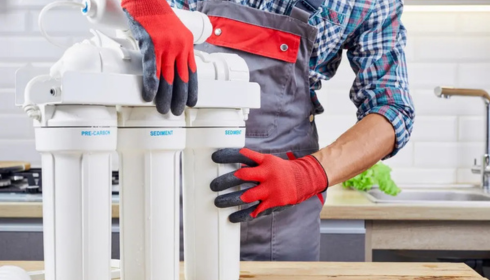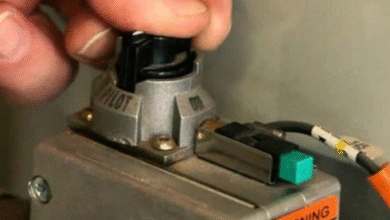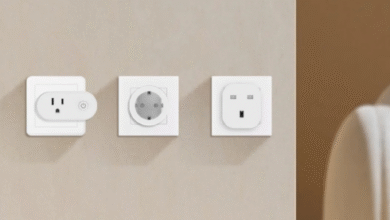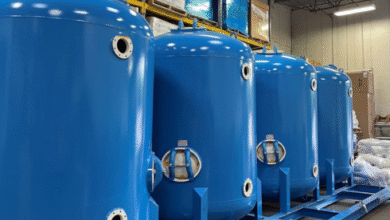
When Clean Water Becomes Complicated: A Guide to Fixing and Trusting Your Home’s System
Most of us take the luxury of clean water for granted until one day it suddenly doesn’t flow the way it should. Maybe the tap starts sputtering, maybe the water smells a bit metallic, or maybe there’s just that nagging feeling that something’s off. Water, after all, isn’t just another utility—it’s personal. It touches your cooking, your showers, your laundry, even the plants you nurture on your balcony. And when the system behind it falters, the ripple effect can be surprisingly stressful.
I’ve been down this road myself, fiddling with filters and juggling half-baked DIY fixes before realizing some problems are way above my pay grade. That’s where knowing who to call—and when to call—makes a world of difference.
Why Small Problems Rarely Stay Small
A dripping faucet or cloudy water might not feel like an emergency at first. But these tiny symptoms can hide larger issues. Minerals can build up inside pipes, pumps can lose efficiency, and bacteria can quietly multiply in a tank that hasn’t been serviced in years. Ignoring the signs often turns what could’ve been a quick fix into a wallet-draining ordeal.
That’s the tricky part with water systems—you don’t always see what’s happening behind the scenes. So, while it’s tempting to wait things out, it’s often smarter to tackle issues head-on before they spiral.
The Art of Repairing a Household System
Fixing water infrastructure at home isn’t glamorous, but it’s the backbone of day-to-day comfort. If you’ve ever had to call someone for home water system repair, you know the relief that comes when things finally click back into place. A good technician doesn’t just swap parts. They troubleshoot. They test pressure levels, check filters, examine for leaks, and explain what’s happening in plain language. That blend of technical know-how and practical advice is what sets apart a routine service call from a genuinely reassuring experience.
And let’s be honest—while YouTube tutorials can make it look easy, there’s a reason professionals exist. Messing with pipes and tanks can quickly turn a minor hiccup into a weekend-long mess.
What Makes Well Water Different
If your household runs on municipal supply, you mostly worry about pressure and clarity. But well owners live in a different universe. Wells demand a kind of guardianship—monitoring iron, sulfur, nitrates, bacteria, and more. Each season can bring its own set of challenges. A rainy spring might stir up sediment; a dry summer could lower water tables.
That’s why well water treatment system installers aren’t just tradespeople. They’re part scientist, part engineer. They test, they design, they install systems customized for the quirks of your soil and geography. If you’ve ever seen orange stains in sinks from excess iron or smelled that rotten-egg sulfur odor, you know how vital their work is. Without the right setup, even the most charming countryside home can turn into a constant maintenance headache.
Local Expertise Matters More Than You Think
Here’s a truth that doesn’t get talked about enough: water isn’t the same everywhere. What clogs a filter in Arizona might be completely different from what corrodes pipes in Maine. That’s where relying on local water treatment specialists pays off. They understand the quirks of your area’s groundwater, the municipal additives, and even the seasonal shifts that affect supply.
I once heard a neighbor complain that his “big-box filter system” worked beautifully… for three months. After that, the unit barely kept up. Why? Because the system wasn’t designed for the specific hardness levels in our region. A local professional could’ve saved him the trouble, recommending a setup that was actually meant for the job. It’s a reminder that generic fixes rarely beat tailored solutions.
When DIY Can Work—And When It Won’t
Of course, not every hiccup requires professional intervention. Replacing a faucet aerator, cleaning a clogged showerhead, or swapping out a basic filter are well within the reach of a handy homeowner. And there’s a certain pride in handling the small stuff yourself.
But there’s a line. When you’re dealing with recurring low pressure, water discoloration, unexplained odors, or anything involving electrical pumps and tanks—it’s time to step back. Think of it like working on your car: changing windshield wipers is fine; rebuilding the transmission is a different story.
The Real Cost of Neglect
It’s tempting to put off maintenance until something breaks. Life is busy, bills pile up, and water feels like it should “just work.” But here’s the kicker: neglect costs more in the long run. Replacing an entire pump or treating deeply contaminated water can wipe out a budget faster than routine checkups ever will.
And it’s not just about money. Poor water quality can sneak into your daily life—skin irritation, funky-tasting meals, laundry that never feels fully clean. These are the hidden costs we don’t always calculate until it’s too late.
Building Trust with the Right Professionals
At the end of the day, water care is as much about trust as it is about technology. The best professionals aren’t the ones who push the priciest gear; they’re the ones who take time to explain options, outline pros and cons, and tailor solutions without overselling.
If you’re unsure where to start, ask neighbors who they use, check online reviews with a critical eye, and don’t be afraid to get a second opinion. The right fit often reveals itself in how comfortable you feel asking questions—and whether you get straightforward answers in return.
Looking Ahead: Prevention as a Mindset
Imagine treating water systems the way we treat cars. Regular checkups, routine tune-ups, and preventive care before problems get out of hand. If that mindset took hold, fewer households would face emergency breakdowns and more would enjoy consistent, reliable water year after year.
It doesn’t have to be complicated. A yearly inspection, a filter replacement schedule, and a good relationship with a trusted specialist are often all it takes.
Closing Thoughts
Water is one of those things that seems invisible until it’s not. When it flows cleanly and reliably, we barely think about it. But when something goes wrong, it becomes the center of attention—fast. The good news? Solutions exist, whether you’re leaning on repair experts, tapping into the knowledge of local installers, or simply staying proactive with maintenance.
At its core, caring for your water system is caring for your home, your family, and yourself. And while it may never be glamorous, it’s one of those quiet investments that pays back every single day.



